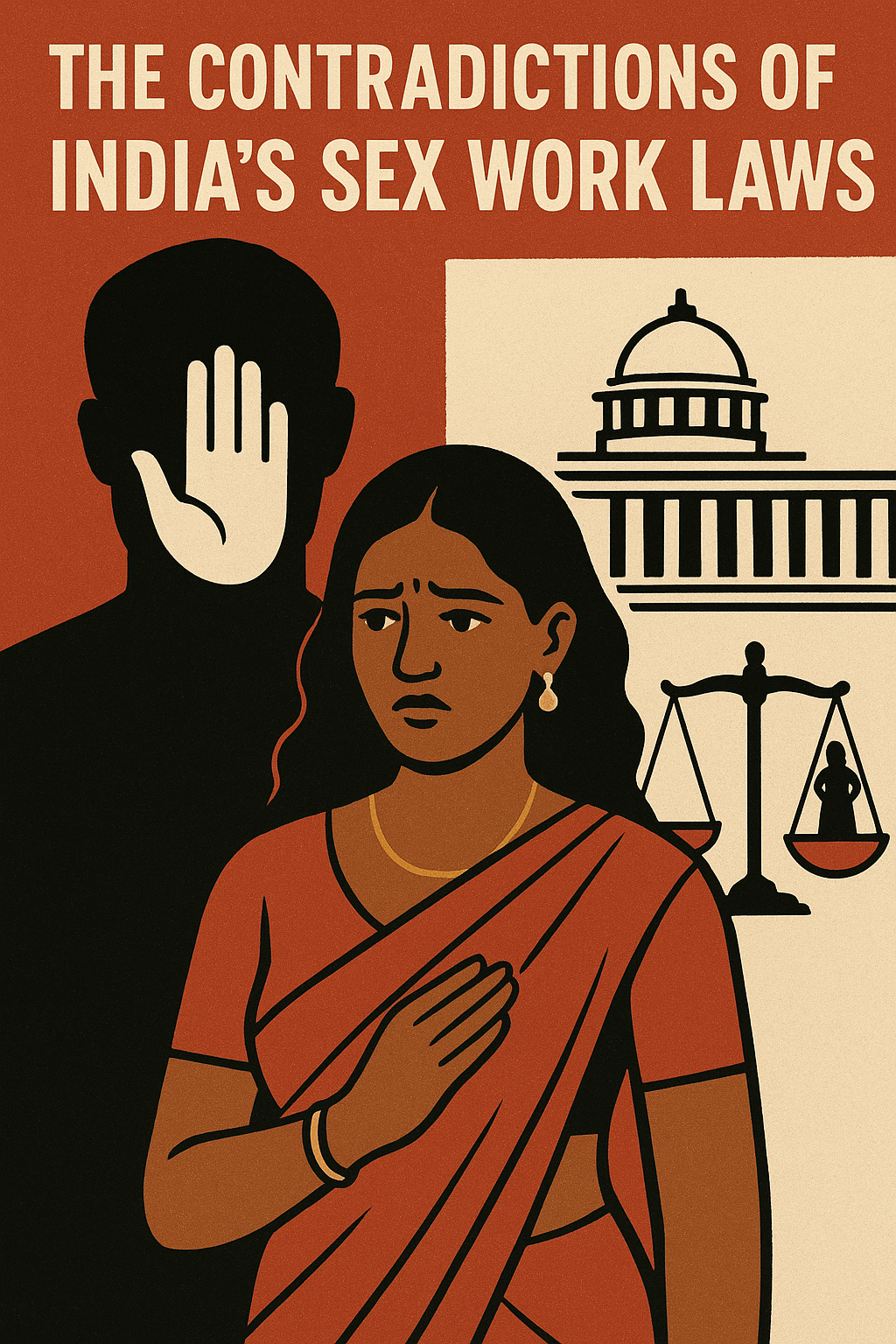



A significant portion of it is likely old content in an old book with a new cover. Section 69 of BNS provides that sexual intercourse with a woman without intention to marry, deceitfully or without intention, can result in imprisonment for up to ten years and a fine. Previously in IPC, we read section 376 with section 90 under which this offense lied and the offender tried under. Previously consent given on false promise of marriage amounts to rape u/s 376 r/w section 90 of the IPC but, now a new section made under BNS expressly provides that making a false promise of marriage in order to have sexual intercourse does not amount to rape though punishable. This article will explore the mentioned section under BNS and previously running sections under IPC associated with the false promises of marriage along with some case laws and opinions.
There are three essential ingredients to section 69 of BNS which are as follows:
Legal Implication of Section 69 of BNS: Not Amounting to Rape: Under Section 69, having sex by dishonest methods does not constitute rape, but it is nonetheless punishable. In addition to paying a fine, the offender suffers a maximum 10-year sentence in jail.
Previously, Section 90 of the Indian Penal Code (IPC) applied to these circumstances, stating that consent provided while misrepresenting the facts was invalid. Section 375 of the IPC, which defines rape, may result in charges in certain instances.
In Anurag Soni v. State of Chattisgarh (2019) it was held that if the accused, who promised to marry the prosecutrix, did not intend to marry and the prosecutrix consented to sexual intercourse based on this assurance, it can be considered consent obtained on a misconception of fact under section 90 IPC. This consent does not excuse the offender, who can be convicted of rape under section 375 IPC and can be convicted under section 376 IPC.
Section 375 of the Indian Penal Code defines rape which can be seen as follows, A man is considered to commit rape if he penetrates his penis into a woman’s vagina, mouth, urethra, or anus, or makes her do so with him or any other person. This can occur under seven descriptions: (1) against her will, (2) without her consent, (3) with her consent when she is in fear of death or hurt, (4) with her consent when she believes he is another man to whom she is or believes herself to be lawfully married, (5) with her consent when she is unable to understand the nature and consequences of the substance she gives consent, (6) with or without her consent when she is under eighteen years of age, and (7) when she is unable to communicate consent. And, explanation 2 of the section states that Consent means an unequivocal voluntary agreement when the woman communicates a willingness to participate in the specific sexual act through words, gestures, or verbal or non-verbal communication. A woman who does not physically resist the act of penetration is not considered as consenting to the sexual activity. Exceptions to this definition include medical procedures or interventions, and sexual intercourse or sexual acts by a man with his own wife, the wife not being under fifteen years of age.
Section 90 of the IPC states that consent is not considered valid if it is given under fear of injury, misconception of fact, or by an insane person who cannot understand the nature and consequence of the act. Consent is also not valid if it is given by a child under twelve years of age unless the context indicates otherwise. Consent is not considered valid if the person is aware of the fear or misconception, or if they have reason to believe it was given due to such circumstances.
Section 114-A of Indian Evidence Act provided that in certain prosecutions for rape under clauses (a), (b), (c), (d), (e), (f), (g), (h), (i), (j), (k), clause (l), clause (m), or clause (n) of sub-section (2) of section 376 of the Indian Penal Code, the court presumes that the woman alleged to have been raped did not consent to sexual intercourse by the accused. This provision was substituted by the Criminal Law (Amendment) Act, 2013. Before this amendment, section 114A read as: “Presumption as to the absence of consent in certain prosecutions for rape.” This provision was introduced by Act 43 of 1983, Section 6. In a prosecution for rape under clauses (a), (b), (c), (d), (e), or (g) of sub-section (2) of section 376, the court presumes that the woman did not consent. This provision was added by the Criminal Law (Amendment) Act, 2013.
In Naim Ahmad v. State (NCT of Delhi), the Supreme Court observed that treating a breach of promise to marry as a false promise and prosecuting a person for rape under Section 376 IPC is a mistake. In a false promise, the accused would have deceived the prosecutrix to satisfy their lust,
While in a breach of promise, the accused might have made a serious promise to marry her but faced unforeseen circumstances beyond their control that prevented them from fulfilling their promise. It is crucial to distinguish between these two types of promises to avoid misunderstandings and potential rape charges. Convicted simultaneously of rape under Section 376 IPC, the Supreme Court granted his appeal and cleared him, noting that the prosecutrix was a married mother of three who was mature and knowledgeable enough to comprehend the gravity of the conduct she was giving her permission to, whether it was morally right or wrong.
In Uday vs. the State of Karnataka, a 19-year-old prosecutrix consented to sexual intercourse with a deeply-in-love accused. The prosecution claimed she continued to meet the accused, as the accused promised to marry her later. The prosecutrix became pregnant, and a complaint was filed against the accused for not marrying her. The court ruled that the consent could not be considered a misconception under section 90 of IPC. In this case, tests are laid down which provides guidance on consent issues, but courts must consider evidence and circumstances to determine voluntariness or misconception. Each case has unique facts, and the prosecution must prove all elements of the offense, including the absence of consent based on the evidence on record the court held that the prosecutrix voluntarily and consciously consented to sexual intercourse with her, and her consent was not due to any misconception of fact.
In Yedla Srinivasa Rao v State of Andhra Pradesh, the accused forcibly established sexual relations with a pregnant woman, promising to marry her. The accused repeatedly had sexual intercourse with her but refused to marry her when she became pregnant. When brought to the panchayat, the accused admitted to having intercourse but absconded. The court found that the accused’s intention was not honest, and the woman was misled into believing he intended to marry her. The consent obtained under a misconception, not fulfilling the promise, cannot be considered consent. It has been observed that If a false promise to marry is made with the intention of deceiving a woman to engage in sexual relations, a “misconception of fact” can invalidate her consent. However, a breach of a promise cannot be considered a false promise. To establish a false promise, the maker should have had no intention of upholding their word. Under Section 375, a woman’s consent is vitiated if the misconception of fact was the basis for her choosing to engage in the act.
Another, The Deepak Gulati case highlights the distinction between breaching a promise and not fulfilling a false promise. The court must determine if the accused made a false promise of marriage at an early stage and if consent was given after understanding the nature and consequences of sexual indulgence. In some cases, the prosecutrix agreed to engage in sexual intercourse due to love and passion, not solely due to misrepresentation. In such cases, the court must treat these cases differently. It has been evident from the case that the court must have sufficient evidence to prove that the accused had no intention to keep his promise to marry the victim at the initial stage. However, unavoidable circumstances may prevent a person from fulfilling their promise. Misconception of fact does not always mean failure to keep a promise due to unclear reasons. The fact must have immediate relevance. Section 90 IPC cannot be used to pardon a girl’s act and impose criminal liability unless the court is assured that the accused had never intended to marry her from the beginning.
Previously, when consent was obtained on the false pretext of marriage, it would be considered not as valid consent but as consent under misconception and such sexual intercourse, where the consent obtained under misconception amounts to rape under Section 375 of the IPC, subject to Section 114-A of the IEA, 1872. But if the court is not assured by the relevant facts and evidence that the accused has bad intent from the very beginning or he never intended to fulfill in the future but just to satisfy his lust or personal pleasure under misconception on false pretext of marriage obtained the consent and have a sexual intercourse, then the court would presume the consent not to be taken under misconception and such sexual intercourse where the consent is valid does not amount to rape. Through various judgments, it has been enlightened that there is a distinction between breaching a promise and not fulfilling a promise. The lack of specific provisions paved the way for the accused to run away with an acquittal order, as the act does not amount to rape under Section 375 of the IPC. Now, the new criminal laws make a specific provision that clearly states that consent obtained through deliberate means such as false pretext of marriage, etc., though it does not amount to rape, is a punishable offense under Section 69 of the BNS, which provides the punishment for such an offense with imprisonment for up to 10 years and may also be liable to pay a fine.